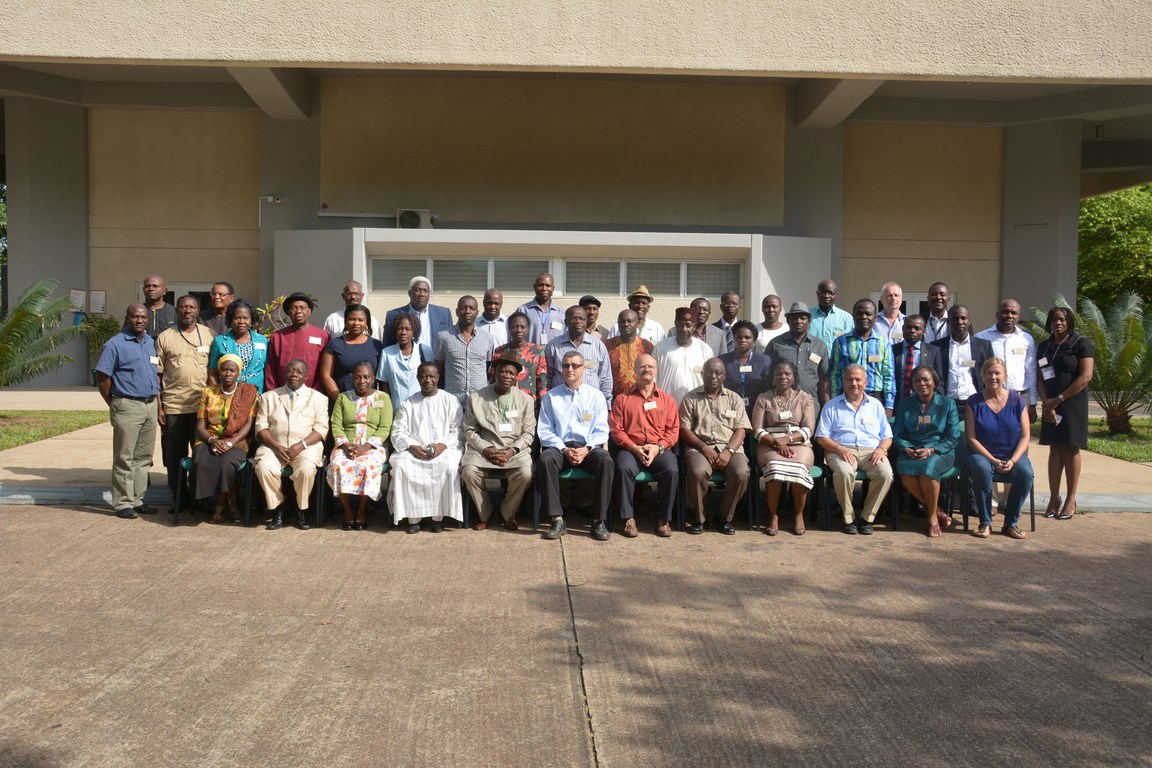Researchers, policymakers, and farmers working under the Cassava Weed Management Project met at IITA, Ibadan, 29-30 April, to review achievements made by the project in 2014 and to plan for 2015.
The meeting had 11 presentations covering the activities of the project in 2014 and provided a platform for stakeholders to compare notes and share lessons learnt.
Declaring the meeting open, Dr Kenton Dashiell, DDG (Partnerships & Capacity Development), IITA, commended the project for its excellent implementation and encouraged partners to sustain the momentum and work together for the task ahead.
Prof Lawrence Kent cited the project team for meeting the milestones for
the year.
“I was impressed when I read your report…you did exactly what you
had promised in the work plan,” Prof Kent said.
Prof Kent expressed his confidence in the leadership of Dr Alfred Dixon (Project Leader) and Prof Friday Ekeleme (Principal Investigator) and lauded the participatory management style and the transparency adopted by the project leadership. It had been a great motivation to the whole project team.
Earlier, Dr Dixon in his remarks, noted that the importance of the meeting could not be overemphasized for several reasons cutting across crop losses, low yield, and the negative health impact of weeds on farm families.
He said, “As we speak, there is a high probability that a child aged between 5 and 14 years is withdrawn from school to assist in weeding a cassava farm. If this is not happening, I can bet that many women are weeding cassava fields under duress. Because of prolonged bending to carry out hand weeding with hoe and cutlasses, most of these women end up having backaches. Also as we speak, several cassava farms are being abandoned because of weeds.”
He called on the team to redouble
efforts to help to solve the problem of the weed menace. For activities marked for 2015, participants at the meeting broke into four groups: Agronomy, Communication & Knowledge Exchange, Mechanical, and Herbicide Screening, and developed work plans. These were carefully reviewed during plenary sessions and then adopted.
The meeting had 64 participants from IITA, National Root Crops Research Institute; Federal University of Agriculture Abeokuta; University of Agriculture Makurdi; Bill & Melinda Gates Foundation; chemical companies – Bayer
Crop Science and Syngenta; Federal Ministry of Agriculture and Rural Development; regulators – Standards Organization of Nigeria, National Environmental Standards Regulatory Enforcement Agency, National Agency for Food and Drug Administration and Control, Nigerian Cassava Growers Association, Agricultural Development Programs; and the private sector.


No Comments